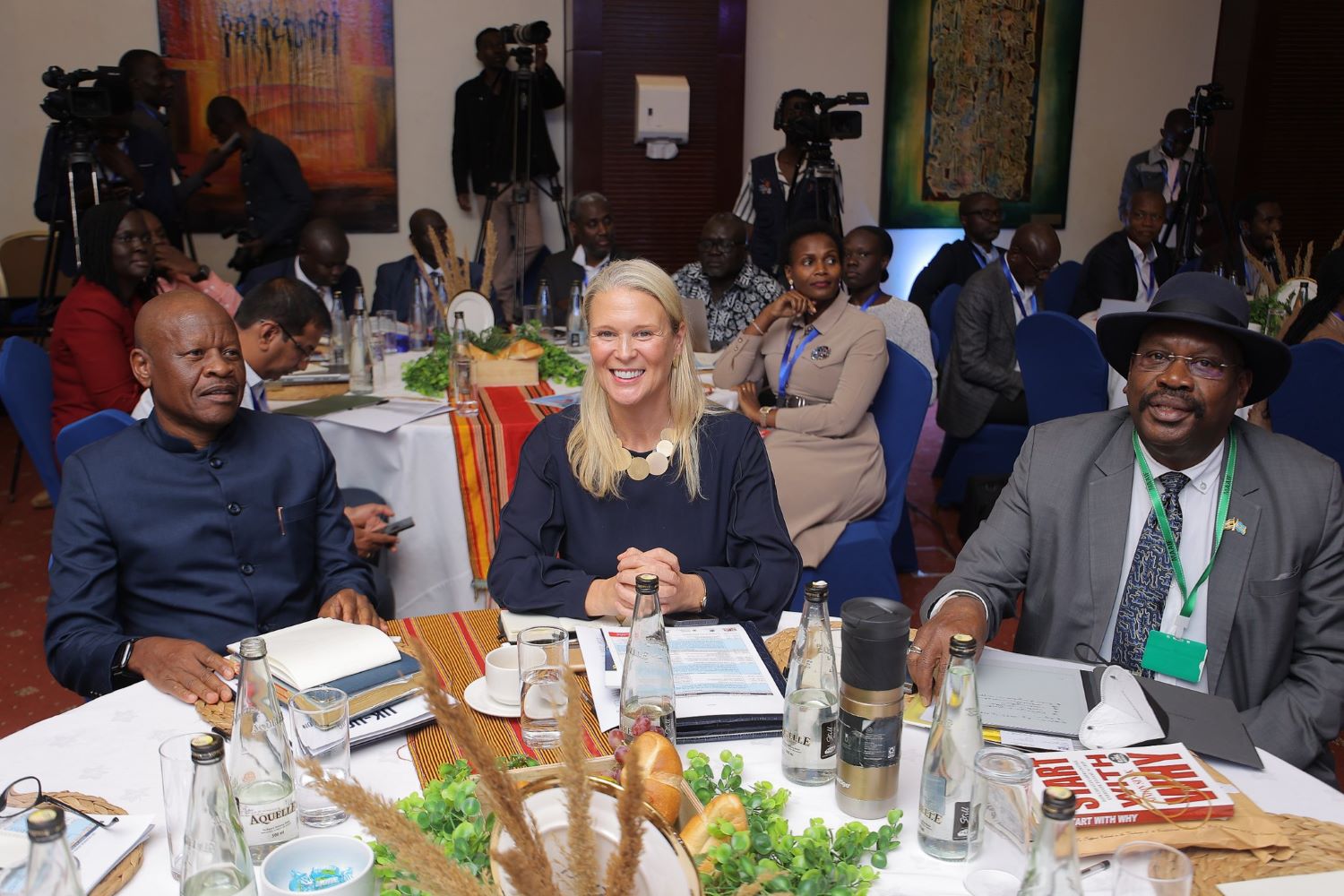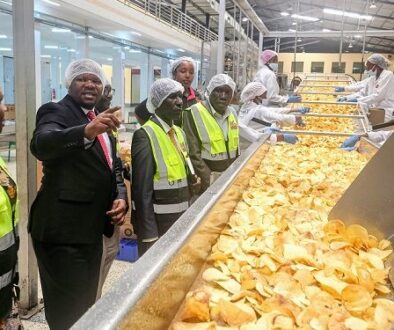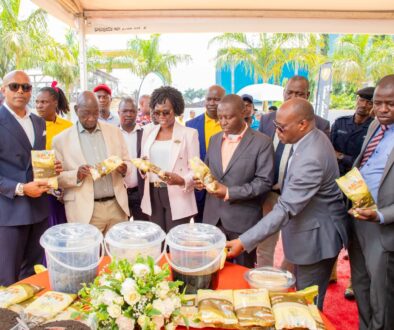UK-UG Cooperation on Agro-Industrialisation

Minister of State for Trade, Hon. Wilson Mbadi, H.E The British High Commissioner to Uganda, Lisa Chesney and Agriculture Permanent Secretary, Maj. Gen. David Kasura Kyomukama at the UK-UG Cooperation on agro-industrialization
The Minister of State for Trade, General Wilson Mbasu Mbadi, has reiterated that the Uganda government’s Agro-industrialisation Programme is a key component of Uganda’s National Development Plan IV (NDP IV).
This was in a keynote address, titled “Unlocking Uganda’s Agricultural Potential: Opportunities for UK-Uganda Collaboration,” on 27th August 2025, at a forum that gathered Uganda farmers, British business interests and Ugandan business people.
He said Uganda’s Ten-fold growth Strategy comprises four key priority accelerator actions for achieving the Ten-fold economic growth [Tourism, mineral-based Industrial Development and STI incl ICT & Creative Art (knowledge economy)]-ATMS.
The strategy aims to increase the commercialisation and competitiveness of agricultural production and agro-processing. It seeks to propel Uganda towards reducing its negative trade balance by adding value to agricultural raw materials. It is also geared to promoting the export expansion of high-value products, and facilitate import substitution.
Uganda’s agricultural sector exports over USD$2.2billion annually. By adding to and doubling the value of the country’s products, “we can increase our export earnings to USD$20billion by 2040, translating into USD$51billion addition to our GDP as per the ten-fold growth strategy.”
Mbadi noted that, “Uganda’s exports to the UK were USD$28m against USD$71m in 2024 (International Trade Centre); coffee, tea, spices, fruits and vegetables, and flowers, and imports are pharmaceuticals, electricals, beverages, spirits, and machinery, among others.”
The UK’s expertise in advanced agricultural technologies and services can help Uganda to improve productivity, quality, and competitiveness.
The collaboration can focus on the national trade policy and national export strategy, prioritising inclusivity, sustainability and resilience, ensuring that the benefits of trade are equitably distributed across our society.
Uganda offers opportunities for investing in Export Processing Zones (EPZs) and agro-industrial parks in key production corridors, alongside supporting the value addition facilities for coffee, fish, maize, cocoa, and other manufactured products to boost competitiveness in regional and global markets.
The two countries can collaborate on capacity-building programs to help Uganda’s farmers, extension workers, exporters, processors and policymakers develop the skills they need to compete in the global market.
The British High Commissioner to Uganda, Her Excellency Lisa Chesney, appreciated that for agro-industrialisation to succeed, Uganda aims to drive up production, processing, value addition and exports. She acknowledged the critical contribution of the ministries of agriculture and trade, which will drive the effort – from farm – to factory – to freight – to buyers.
She was encouraged by the presence of government representatives, business leaders, development partners, traders and exporters, media representatives, and most importantly, the farmers at the forum.
“I’ve tasted the food and drink produced in fields, factories and kitchens across Uganda, learning more about the fuel which keeps Ugandans going, and which has such export potential,” she said.
She said she had learned first-hand about the challenges facing farmers and agribusinesses, access to finance, inputs, markets, set against the challenge of a rapidly changing climate.
UK and Ugandan agribusinesses have a long history of collaboration. UK’s Nexus Green supports farmers across the country, and has rolled out hundreds of solar-powered irrigation schemes, backed by over 100 million dollars of investment by the Government of Uganda and UK Export Finance.
The UK government has collaborated with Uganda Airlines to launch a direct flight to London, opening a route to air freight of fresh Ugandan produce, and the British have facilitated Ugandan coffee companies to feature at the London Coffee Festival, and market Uganda’s coffee to the baristas of the UK. This could help improve Uganda’s 1% of the UK’s £1bn coffee market hold.
The UK, through a partnership with TradeMark Africa and the Ministry of Trade, Industry and Cooperatives, has helped to institute the right policies and given guidance to Uganda’s traders to realise the potential of the country’s nearest, and biggest, trading partners.
Maj. Gen. David Kasura Kyomukama, Permanent Secretary, MAAIF and the UK Business Community attended the forum.



